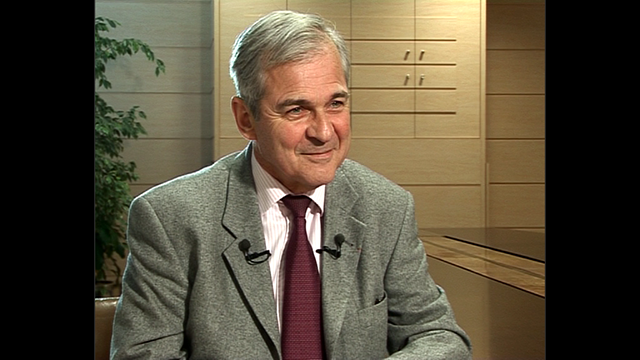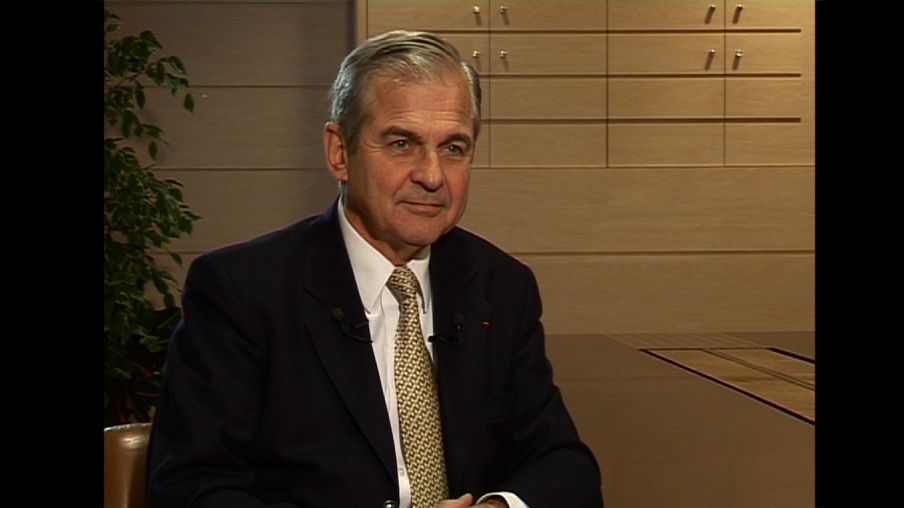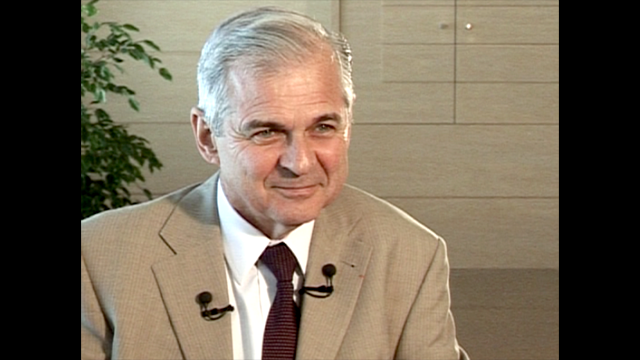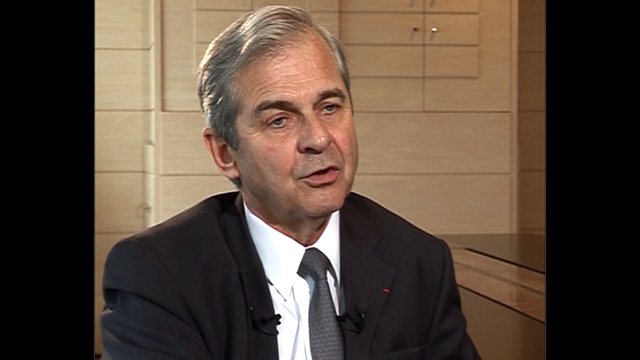EuroBusiness Media (EBM): Technip, one of the world's leading oil services company, has just reported full year profit for 2006. Daniel Valot welcome, what are your comments on the company's performance in 2006 now that we have the final earnings figures for the full year. In particular, the market would like to know whether you can confirm that we are indeed seeing margin improvement at the year-end?
Daniel Valot (DV): It has been a very strong year for us. We said at the beginning of the year that our goals were to reach 6.8 billion euros of revenues. And on that an operating margin of at least 5%. We know now our final numbers - we are above 6.9 billion euros in revenues and our margin ratio stands at 5.2% - so we did even slightly better than our financial targets.
Our cash position continues to be extremely positive, extremely strong and our back-log at the end of the year stands at 10.3 billion euros which is quite large. So we are very satisfied with this year's performance.
EBM: You've returned about half of your excess cash to shareholders through share buy-backs. The market is wondering whether you plan to return part or all of the remainder through a special dividend?
DV: We are going to return all the remainder through an exceptional dividend. So we are going to propose to the shareholders' meeting an exceptional dividend on top of the regular dividend for which, itself, we propose an increase of 14%.
EBM: Total and Exxon, among others, are starting to complain about what they consider to be an excessively high price for oil services. They argue that prices continue to remain high, despite a stabilisation of your procurement environment compared to a few years ago. How would you respond to this and do the oil majors have leverage over you to lower prices today?
DV: Well, I would say that it's true that the cost of the capital projects for the oil and gas companies is rising pretty fast these years. I would say that it's rising mainly because of the drilling activities, the drilling rates; the daily rates for the drilling business, especially offshore, have been skyrocketing and increasing much faster than the cost of our services. Now it's true that for some items in terms of procurement we are now in a situation which is less demanding than what we experienced a couple of years ago.
That's the case for instance for the steel price. You've seen that the prices for things like aluminium or nickel or steel are rising pretty fast. And in addition to that, I'd like to stress that procurement is only one part of the story, the other part of the story is construction and installation for which there is a real shortage of capacity worldwide and therefore very challenging conditions in terms of price and delivery time for us. So, we are still - if you look at our earnings and those of our competitors in engineering construction - we are still making relatively modest earnings compared to some other actors in the oil and gas arena.
Do the majors have a real bargaining power in front of us? Of course, as always they are so big that they have a big bargaining power, probably not to the same extent as to what they had a couple of years ago when there was a strong imbalance between them and us. We are now in a more balanced situation.
EBM: You've stated that you are ready to make new acquisitions, in particular in the industry segment. Could you provide us with more detail about possible targets, size and timeframe?
DV: Well, I would expect us to make at least a few sizeable acquisitions this year. We are now ready to do it. We have a strong financial position. We have fully digested the acquisitions which we did five or six years ago. So we are ready now to make acquisitions.
I cannot provide you with much more detail on that. But I think 2007 should be a year of acquisitions for us.
EBM: What is your update about the transformation of the Khursanyah contract into a lump-sum turnkey contract?
DV: Well, in order to do this conversion you need to be two. Us and the client. So there have been long and protracted discussions for several months now. I would expect the conversion to take place in the very near future now.
EBM: Historically, Technip has been the specialist for lump-sum turnkey contracts, but this strategy has caused you some difficulties recently. Will you go back to doing more 'cost + fees' contracts, which are less risky but also indeed less rewarding?
DV: Well, we are trying to increase a little bit the percentage of reimbursable or 'cost + fee' contracts in our overall portfolio. That's very true. We've recently signed rather large contracts, for instance for the refinery in Saudi Arabia or for another refinery in Columbia in which we are just selling our engineering services, so we take no construction risk so to speak. So that's a trend which I believe is positive for the company - we don't want to be too exposed to construction risks given the overrating situation we are seeing in the construction activities.
EBM: And finally in onshore, 2007 will be a key year with 8 large contracts being executed worldwide. As the year begins, is everything progressing according to schedule?
DV: Everything is progressing according to our expectations and the expectations of the client. So we are facing a very favourable situation at the beginning of this year. I'll cross my fingers and hope it will continue for the rest of the year.
EBM: Daniel Valot, chairman and CEO of Technip, thank you very much.
DV: Thank you.





